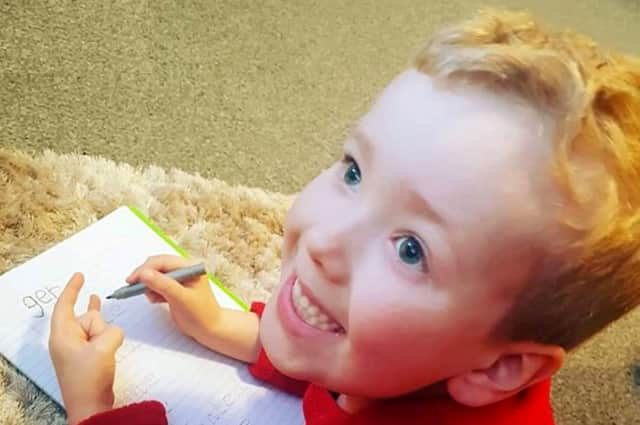Arthur Labinjo-Hughes tragedy; will austerity lesson be learned to avert staff safeguarding scandal? – Rob Potts


If you’re wondering where you’ve heard that redundant refrain before, I’ll tell you: you heard it after eight-year-old Victoria Climbie was beaten, tortured and murdered by her great aunt, despite numerous organisations, including the police and social services, being notified of her prolonged abuse.
You heard it when 17-month-old Peter Connelly was beaten and killed by his mother, her boyfriend and his brother in 2007, with doctors and social services again accused of inaction.
Advertisement
Hide AdAdvertisement
Hide AdAnd you’ll recall it from when the whole sorry cycle was played out again in 2012, when four-year-old Daniel Pelka was starved, beaten and poisoned to death by his mother and her partner, with the NHS and social services again accused of missing the glaring signs of abuse.


Yet here we are again. Another child dead. Another collective national sigh, followed by a collective wringing of hands and a swift return to normality while we await the next tragedy to present itself. If the whole script wasn’t so heartbreaking it would be hackneyed.
The Prime Minister, Boris Johnson, set the tone by declaring: “What we’ve got to make sure now is we learn the lessons about that case.” So far, so predictable.
Scott Benton, Conservative MP for Blackpool South, then took things a step further and attempted to appeal to the baying mob by calling for a return to the death penalty, while Johnson toned down the rhetoric slightly when calling for ‘Arthur’s Law’ and mandatory whole-life tariffs for those convicted of murdering children.
Advertisement
Hide AdAdvertisement
Hide AdPutting aside our grim fixation with punishment (rather than focusing on protection and prevention), the one thing we should all be asking is ‘Haven’t we heard all this before?’


This thought was foremost in my mind as I headed across Leeds for my biannual safeguarding refresher course on Monday.
I first qualified as a Designated Safeguarding Lead around seven years ago and every couple of years I’m legally obliged to attend a refresher course in order to renew my accreditation.
Every course I’ve attended has featured a case study detailing another wholly avoidable tragedy, where the delegates are then invited to dissect the details and decide where things went wrong and which lessons should be learned.
Advertisement
Hide AdAdvertisement
Hide AdBut the uncomfortable truth is that we don’t learn. In a few weeks little Arthur’s plight will be old news; in a year or two he’ll be a fresh case study in the next safeguarding refresher course. We’ll all reflect earnestly, then we’ll rinse and repeat until another dead child briefly draws the attention of a stricken nation. I’m quite certain that those professionals who missed the signs, failed to act and failed to communicate are good people who entered their profession because they genuinely care. Sadly, they too are victims of a broken system.
The tragic timeline tells us that this is not a partisan issue, although it’s hard to refute the fact that the austerity inflicted on our public services from 2010 onwards and the persistent wilful neglect that has followed have made a bad situation much, much worse.
As with many areas of government neglect, our underfunded education system has been called upon to pick up the slack. In almost all of the cases detailed, there’s been a fairly reliable pattern of schools raising concerns but then social services failing to act.
In the city of Leeds, even on a good day, there are (at most) 12 people answering phone calls as part of the ‘Duty and Advice’ team which acts as the first line of defence when concerns are raised. That’s an absolute maximum of 12 people holding the line in a city of 180,000 children. No matter how committed, caring and capable those people may be, that’s simply not enough.
Advertisement
Hide AdAdvertisement
Hide AdIn the case of Arthur Labinjo-Hughes, once the public’s clamour for retribution has faded, there will be a need for blame and that blame will almost certainly land at the door of a handful of overworked scapegoats trapped in an underfunded system.
Leeds – like many other local authorities – is finding it increasingly difficult to recruit the social workers it desperately needs. The city is currently struggling to fill 25 vacancies and you have to question who would be brave enough to be part of a broken and criminally underfunded system.
So we shouldn’t be entirely shocked by the needless death of little Arthur; we should be thankful that such avoidable tragedies don’t happen more often.
Until we invest sufficiently in the protection of children, there’ll be more Victorias, Peters, Daniels, Khyras and Arthurs and no amount of hand wringing and reflection will change that.
Advertisement
Hide AdAdvertisement
Hide AdRob Potts works at Parklands Primary School in Seacroft and is the author of The Caring Teacher - How to make a positive difference in the classroom (John Catt Educational Ltd).
Support The Yorkshire Post and become a subscriber today. Your subscription will help us to continue to bring quality news to the people of Yorkshire. In return, you’ll see fewer ads on site, get free access to our app, receive exclusive members-only offers and access to all premium content and columns. Click here to subscribe.
Comment Guidelines
National World encourages reader discussion on our stories. User feedback, insights and back-and-forth exchanges add a rich layer of context to reporting. Please review our Community Guidelines before commenting.